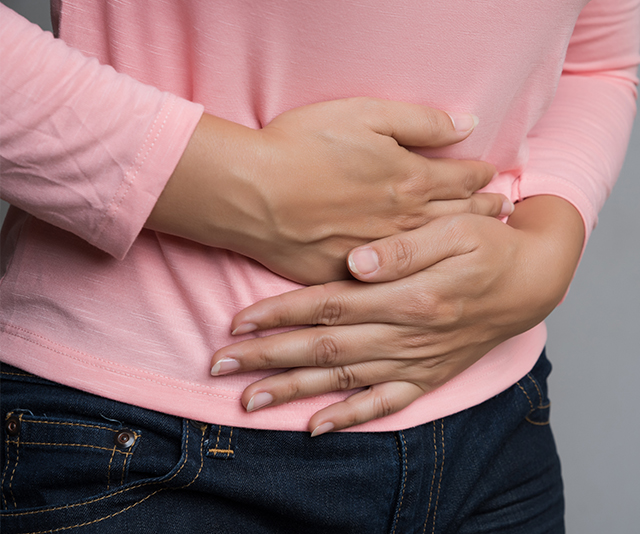These days everything from our breakfast cereals to water seems to have extra vitamins added to it.
We all know we need vitamins and minerals to function and maintain our health but are we already getting enough with just a reasonably balanced diet, without taking fortified foods and supplements?
What happens when you take too many vitamins?
If you’re getting your vitamins from whole foods there probably isn’t much chance of overdosing, but if you regularly consume supplements and vitamin-fortified foods you may be at risk.
While people may think that if a small amount of vitamins is good for you, a large amount must be great, this is not the case.
Your body cannot store water-soluble vitamins for later use.

Do we really need vitamins and supplements?
(Image: Getty Images)If you take more then you need on a daily basis, you will excrete the rest.
This is why your pee is so yellow when you take a vitamin supplement. Your body is getting rid of the extra vitamins.
More serious side-effects of long-term overdosing on vitamins can include diarrhoea, muscle cramps, hair loss and fatigue. Pills are no substitute for a good diet.
Vitamin deficiency: When to be concerned
There are some signs which may show you have a serious vitamin deficiency or other medical conditions which require immediate treatment.
See your doctor if you have any of the following symptoms: wounds that are slow to heal, irregular heartbeat, deteriorating vision, severe hair loss or burning in your feet or tongue.
Otherwise, if you are feeling a bit run-down and like you could use a vitamin boost, try these natural alternatives.

There are lots of natural alternatives out there.
(Image: Getty Images)Vitamin C
As we head into cold and flu season, many people will start dosing up on vitamin C, however, there is no evidence to suggest that taking large doses of it will help prevent a cold.
It might cause nausea, headaches, diahhorea or lead to kidney stones.
Too much vitamin C can also interfere with the absorption of medicines such as the contraceptive pill, so it is important to let your doc know if you are taking it.
Top up your stores naturally by eating plenty of richly coloured fruits like oranges, strawberries and kiwi fruit.

Fruits like oranges are rich in vitamin C.
(Image: Getty Images)Iron
Iron is essential to the body and for feeling like you have lots of energy – and it’s one of the most common vitamins women are deficient in but popping an iron supplement won’t necessarily help.
This is because iron needs other vitamins such as vitamin C to be consumed with it, to help with absorption.
So try a squeeze of lemon juice over a spinach salad or add some red capsicum to a beef stir-fry to help you get the most benefits and add some pep to your step.

Combine iron-rich foods like red meat with veggies full of vitamin C.
(Image: Getty Images)Probiotics
Your gut is full of trillions of bacteria and micro-organisms.
Some of these bacteria are essential to good health and other types are harmful. A diet rich in probiotics will help the good bacteria flourish leading to good gut health.
Since probiotics are live bacteria, they start to die off during the manufacturing process to turn them into a supplement, so you may not be getting the dose you need through popping a pill.
To top up your good gut bacteria, eat food high in probiotics such as yoghurt, sauerkraut and miso or try the probiotic-rich drinks kefir and kombucha.

Foods like kimchi, yoghurt, sauerkraut, and miso are high in probiotics.
(Image: Getty Images)Vitamin D
Vitamin D is important to maintain healthy bones and muscles.
The amount of vitamin D found in food is small and it’s hard to absorb, so the best way to get a hit of vitamin D is to spend some time in the sunshine.
Exposing your hands and arms to the sun for 10 minutes a day, three times a week, will help boost your vitamin D naturally.
But remember your sunscreen. (Some newer products on the market still allow Vitamin D to be absorbed). And be careful not to overdo it as this can lead to skin damage and you will get no additional vitamin D benefits by spending longer in the sun.

Need some vitamin D? Get outside and enjoy the sunshine!
(Image: Getty Images)Calcium
Calcium is key to maintaining strong bones and teeth. In extreme circumstances, lack of calcium can lead to osteoporosis. However, getting excessive amounts of calcium from supplements can lead to cardiovascular disease or kidney stones.
If you are eating a calcium-rich diet full of dairy products such as milk, yoghurt and cheese and still not reaching your daily target, you may not be absorbing the calcium due to a high sodium intake. Try using pepper and herbs to season meals and watch out for hidden salt popular in packaged foods.

Dairy products such as milk, yoghurt and cheese are high in calcium.
(Image: Getty Images)Magnesium
Magnesium is an important mineral which helps produce energy and regulate blood sugar.
Taken in large doses, magnesium builds up in the body and can lead to side effects such as irregular heartbeat, low blood pressure and slow breathing.
Some of the yummiest foods are magnesium-rich so feel free to tuck into a baked potato with dinner and finish off with some dark chocolate. If you have had a gastrointestinal upset, your magnesium levels might need a top-up so trying soaking in a warm bath filled with a cup of Epsom salts for 20 minutes.
